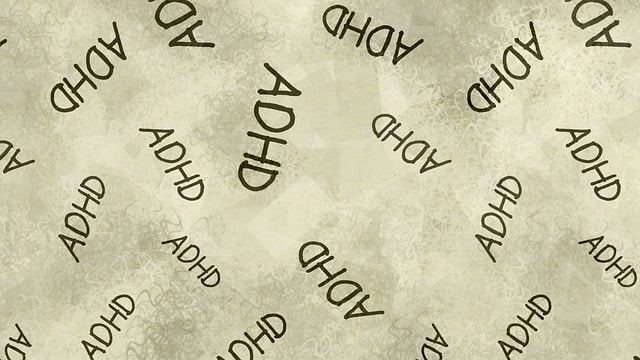Crisis intervention is a critical component of mental health support, especially for conditions like Borderline Personality Disorder (BPD). Golden Conduct Disorder Therapy (GCDT) offers a revolutionary approach by transforming disruptive behaviors into adaptive responses, empowering individuals with emotional regulation skills and effective coping mechanisms. This structured method, combined with evidence-based techniques like cognitive behavioral therapy and mindfulness practices, enhances mood management and promotes self-awareness, preventing burnout. Professionals in crisis intervention must prioritize self-care and continuous training to remain effective, fostering open dialogue about mental health and implementing robust policies for their own well-being.
In today’s fast-paced world, effective crisis intervention is a vital component of mental health support. Understanding crisis intervention strategies is crucial for professionals navigating complex situations. This article provides comprehensive guidance, covering essential topics such as Golden Conduct Disorder Therapy, an innovative approach to crisis management. By exploring practical strategies, training considerations, and self-care practices, readers will gain valuable insights into enhancing their ability to intervene during mental health crises effectively.
- Understanding Crisis Intervention: A Key Component of Mental Health Support
- Golden Conduct Disorder Therapy: An Innovative Approach to Crisis Management
- Practical Strategies for Effective Crisis Intervention
- Training and Self-Care Considerations for Professionals in Crisis Intervention
Understanding Crisis Intervention: A Key Component of Mental Health Support

Crisis intervention is a vital component of mental health support, designed to provide immediate and effective assistance during moments of intense distress or upheaval. It involves a structured approach to help individuals cope with and recover from crises, focusing on stabilizing their emotional state and preventing further deterioration. This process is crucial for those dealing with conditions like Borderline Personality Disorder (BPD), where impulsive behaviors and intense emotions can lead to severe consequences.
Understanding the individual’s experience is at the heart of crisis intervention. It encourages self-awareness exercises and emotional intelligence, enabling individuals to recognize and manage their triggers. By fostering coping skills development, people learn strategies to navigate future challenges. This proactive approach not only helps in the moment but also equips individuals with long-term resilience, promoting better mental health outcomes and enhancing overall well-being.
Golden Conduct Disorder Therapy: An Innovative Approach to Crisis Management

Golden Conduct Disorder Therapy (GCDT) represents a groundbreaking shift in crisis intervention strategies, offering a unique and innovative approach to managing intense emotional states. This therapeutic method focuses on identifying and transforming disruptive behaviors and thoughts into adaptive responses, thereby promoting mental wellness. Unlike traditional crisis management techniques that often rely heavily on medication or short-term interventions, GCDT takes a holistic view, addressing the root causes of distress.
The core principle behind GCDT is to help individuals develop effective coping mechanisms and enhance their emotional regulation skills. By employing various evidence-based techniques, such as cognitive behavioral therapy and mindfulness practices, this approach aids in improving mood management. Moreover, GCDT encourages self-awareness, fostering a deeper understanding of one’s triggers and responses, which can be instrumental in burnout prevention. Through tailored interventions, the Mental Wellness Podcast Series Production can provide valuable insights into these strategies, offering a fresh perspective on crisis intervention that empowers individuals to navigate challenging situations with resilience and adaptability.
Practical Strategies for Effective Crisis Intervention

In the realm of crisis intervention, a well-structured approach can make all the difference in supporting individuals facing severe emotional distress or mental health crises. One evidence-based strategy, grounded in Golden Conduct Disorder Therapy (GCDT), emphasizes the importance of creating a safe and non-judgmental environment. This involves active listening, validating the person’s feelings, and ensuring their immediate physical safety. GCDT also encourages professionals to help individuals identify and challenge negative thinking patterns, promoting healthier coping mechanisms.
Additionally, integrating Mental Health Policy Analysis and Advocacy into crisis intervention can ensure systemic support. By understanding and advocating for effective mental health policies, professionals contribute to a broader framework that addresses the root causes of crises. Risk Management Planning for Mental Health Professionals is another crucial aspect, as it equips practitioners with tools to manage their own well-being while providing care. This includes self-care practices and clear guidelines for escalating situations when necessary, fostering a culture of resilience within the field. These comprehensive approaches complement Emotional Healing Processes, aiming to restore balance and promote lasting recovery for those in crisis.
Training and Self-Care Considerations for Professionals in Crisis Intervention

Professionals involved in crisis intervention play a vital role in helping individuals navigate through their most challenging moments. Therefore, prioritizing self-care and ongoing training is essential to ensure they remain equipped and effective in their practice. Training programs should focus on evidence-based practices tailored to specific crisis scenarios, including post-traumatic stress disorder (PTSD), suicide prevention, and acute emotional distress.
Incorporating strategies for inner strength development and empathy building into training modules can enhance professionals’ ability to connect with clients and offer supportive interventions. Moreover, fostering a culture of open dialogue around mental health issues within the workplace, coupled with robust mental health policy analysis and advocacy, can create a supportive environment that encourages self-care practices among interventionists. These considerations are crucial in mitigating burnout and ensuring professionals maintain their emotional resilience while providing crisis support.
Crisis intervention plays a vital role in mental health support, and with strategies like Golden Conduct Disorder Therapy, professionals can effectively manage crises. This innovative approach, combined with practical techniques, ensures individuals receive prompt and quality care. When appropriately trained and prioritizing self-care, crisis intervention specialists can make a profound impact, fostering resilience and recovery. By integrating these guidance points, we enhance our ability to navigate challenging situations, ultimately improving outcomes for those in need.














